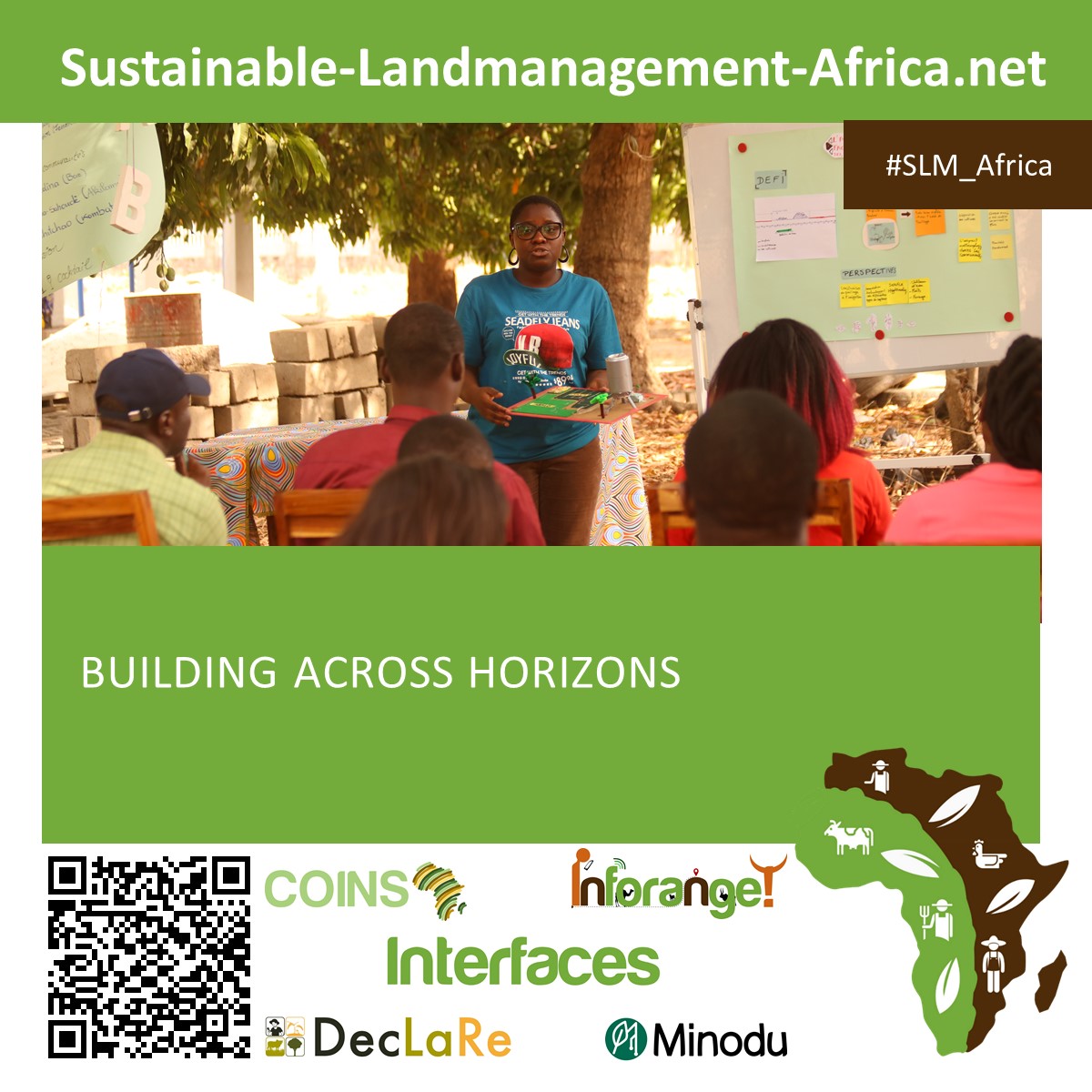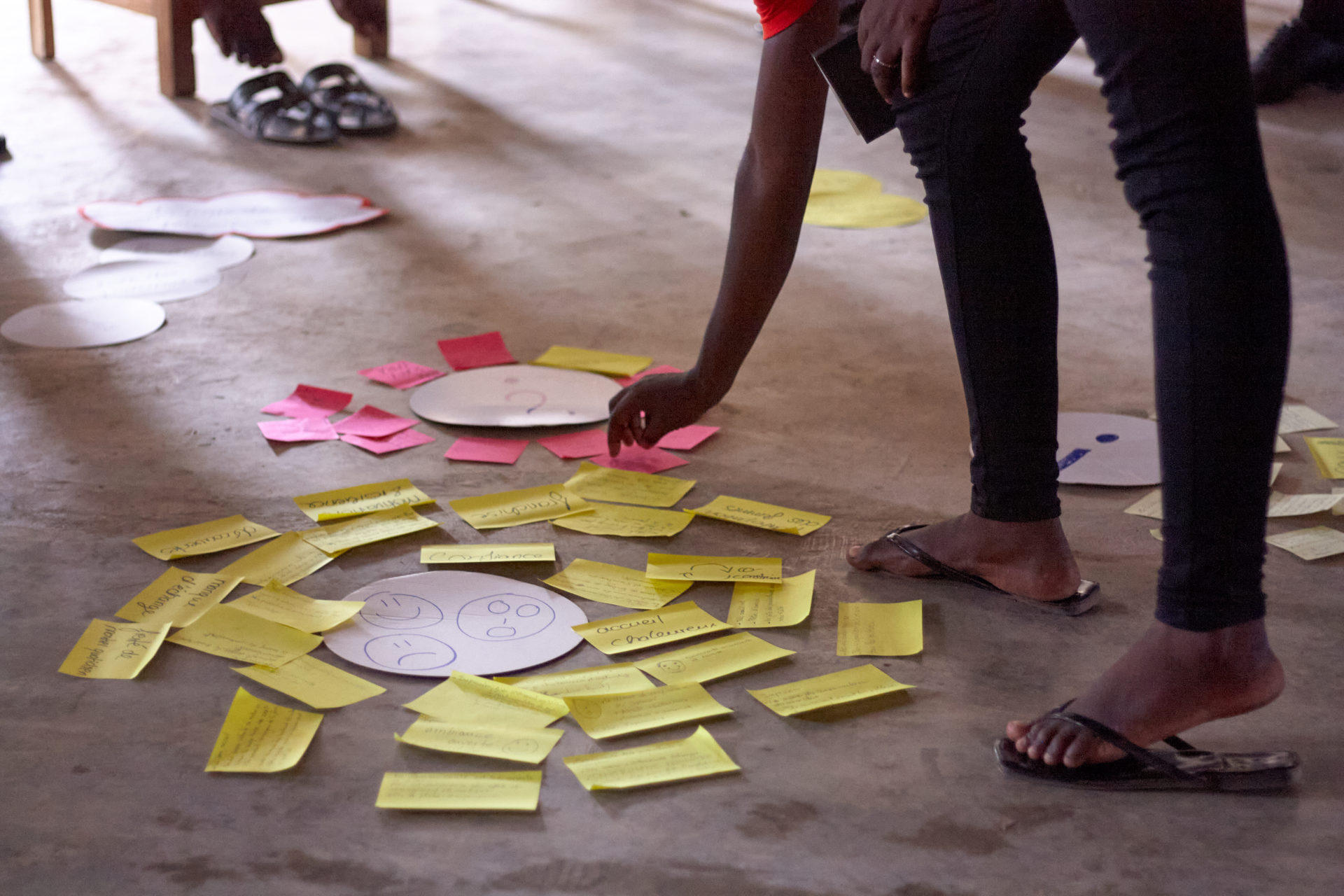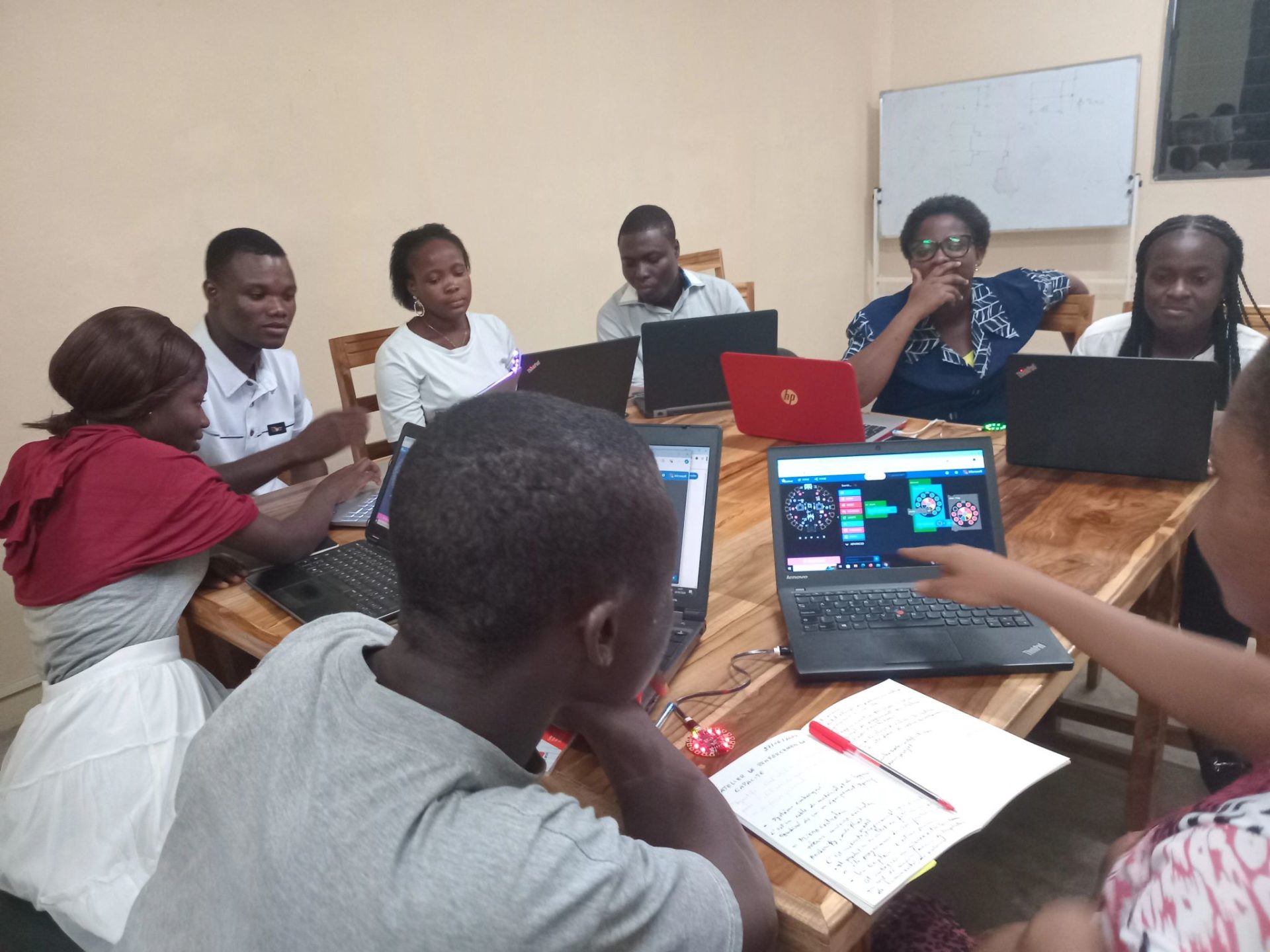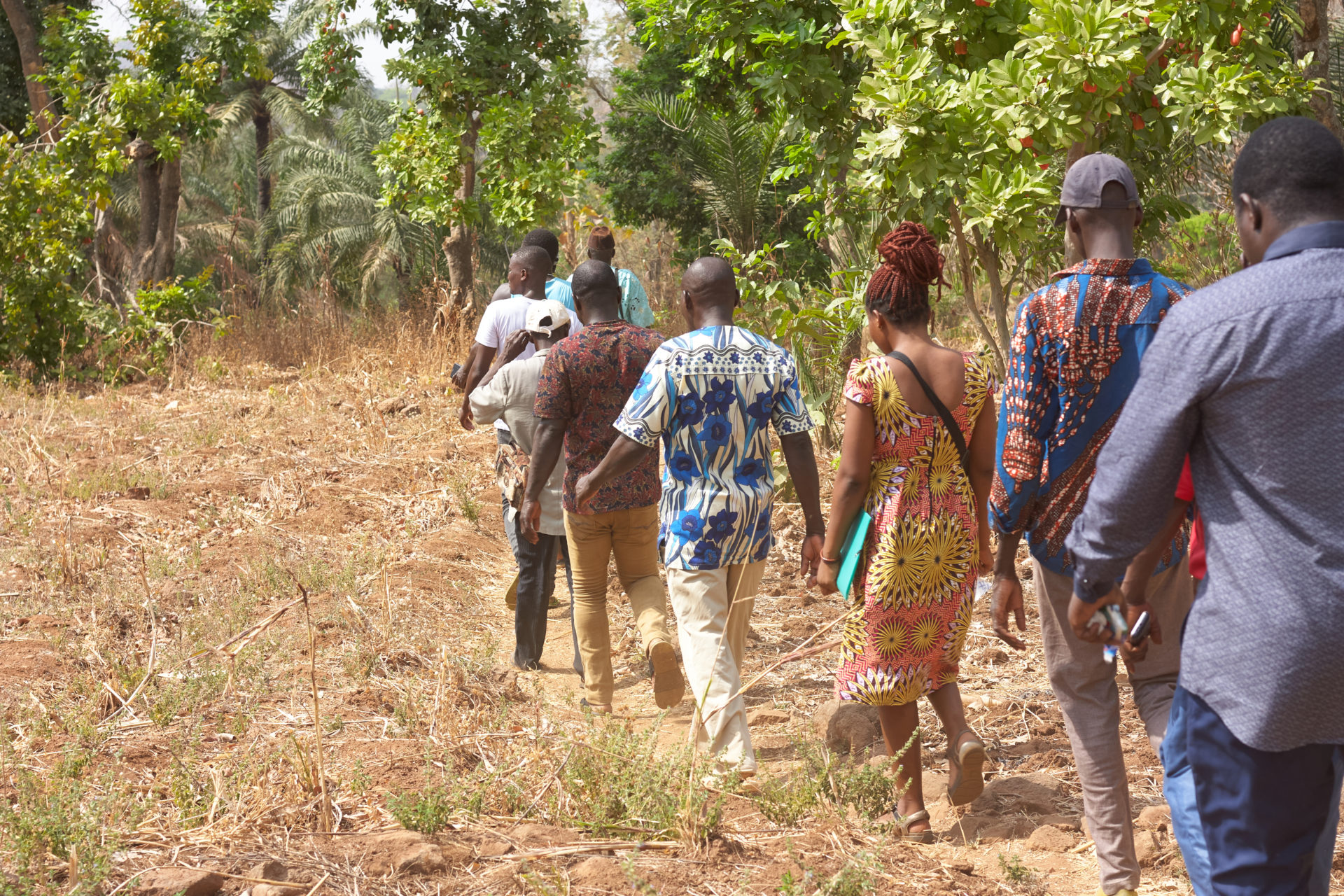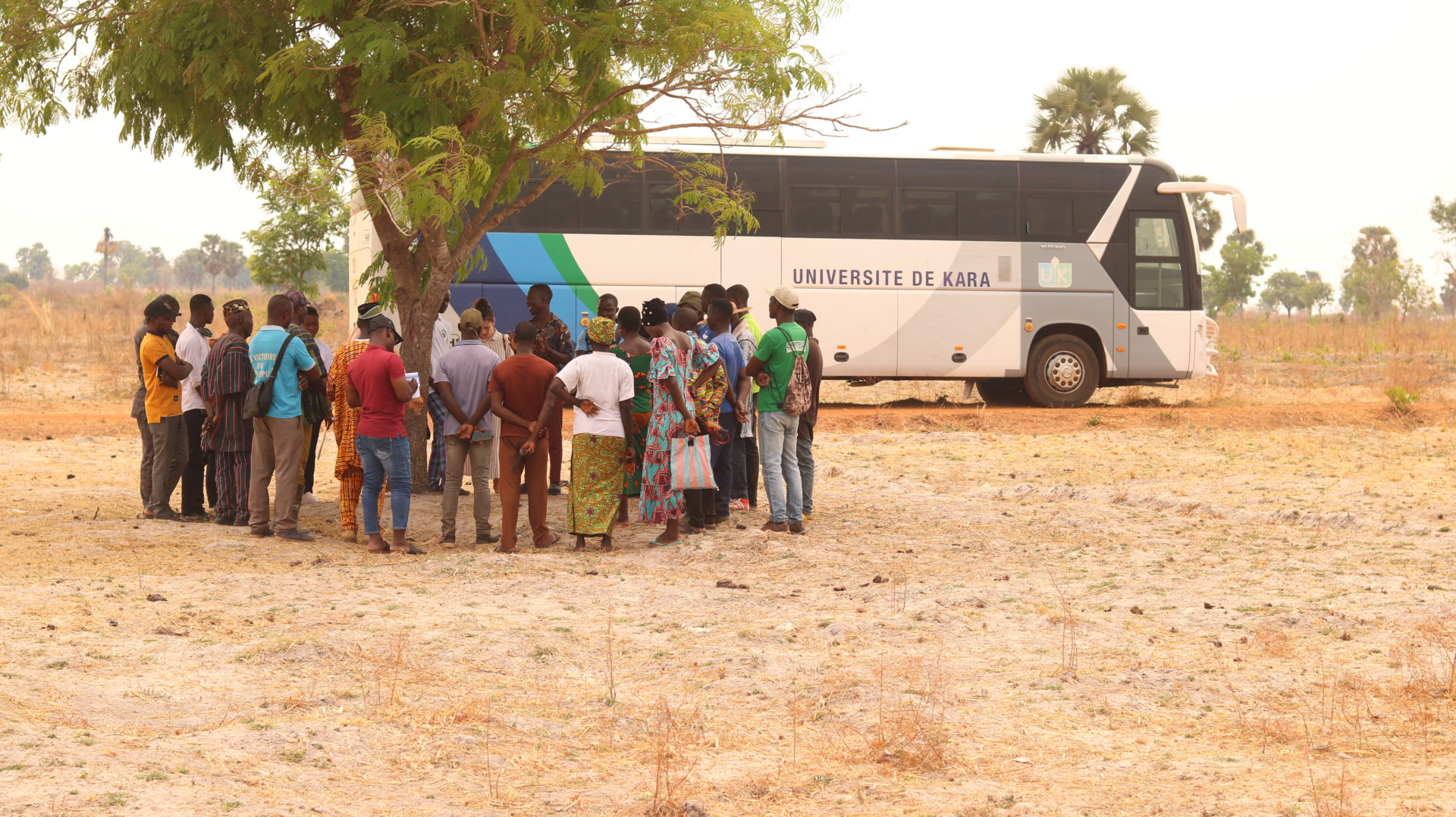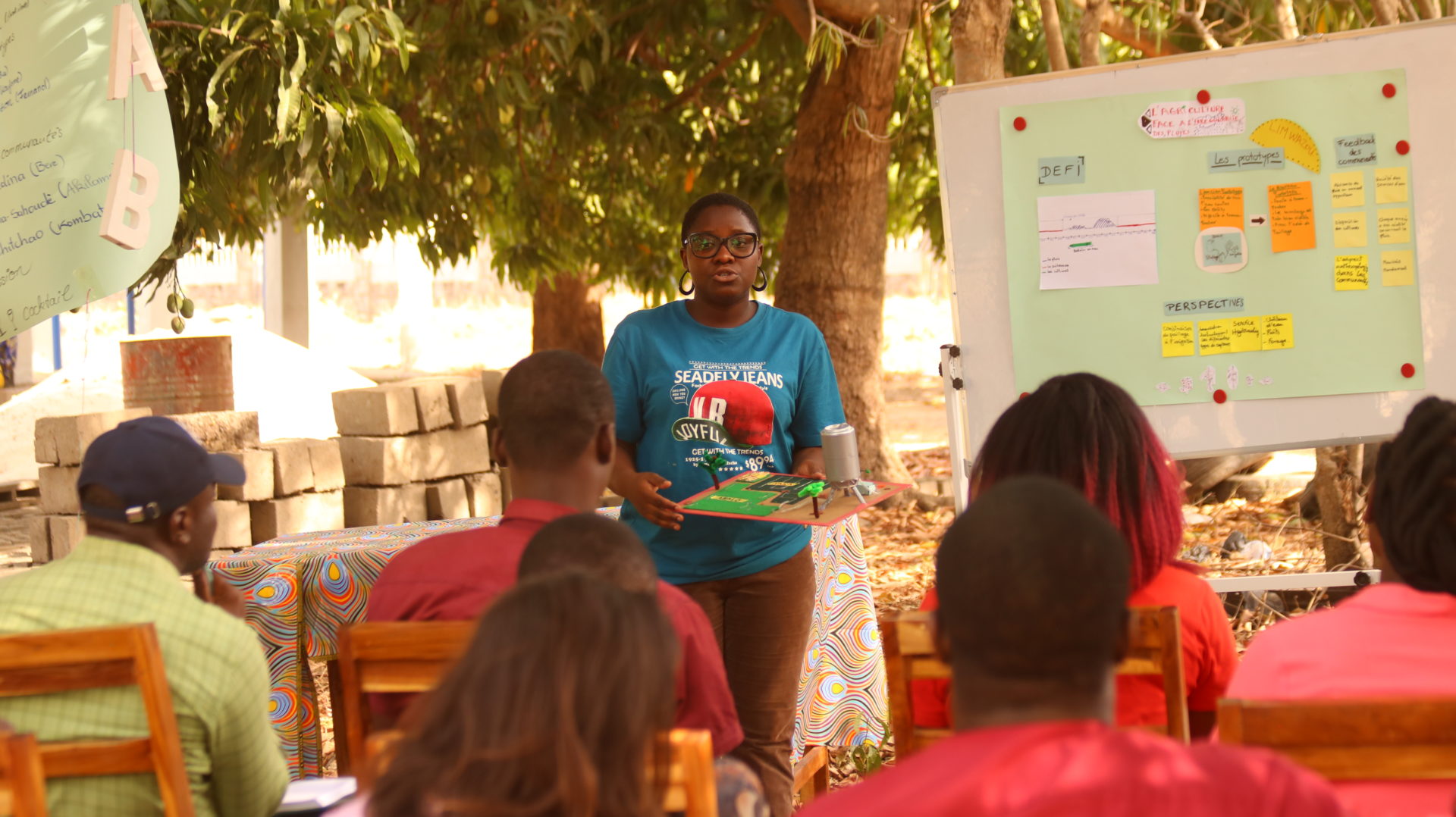Building Across Horizons: Workshops for Collaborative Knowledge Processing in Togo
The aim of the Minodu project is to process existing knowledge on the effects of climate change in a user-friendly way. Creating local networks and developing concrete approaches to solutions together with rural communities and students from the University of Kara is at the heart of the project. Co-creation workshops are providing spaces for exchange and co-construction amongst people from the most different horizons: villagers, scientists, and students.
After running a hybrid collaborative university course with students from the University of the Arts in Berlin and the University of Kara in the last semester (see Blog #1), the Minodu project team travelled to Kara in March 2024 for one week of interactive workshops with the Togolese students.
Understanding local needs and adapting technological solutions
The students continued their work on the prototypes that were developed within the hybrid course. After that, the group visited three local villages in the region of Kara (Soumdina Haut, Lama-Saoudé, and Tchitchao) to discuss the practicality of the prototypes with the communities and to gather their feedback.
The students proposed various DIY technologies, such as an irrigation system for drought periods, an indigenous plant extract for pest control, and a Local Community Network for knowledge exchange. The inhabitants of the villages vividly engaged in the intensive and constructive discussions with the students, mostly conducted in the local language, Kabyè. The main goal of the exchanges was to understand local needs and adapt technological solutions accordingly.
Farmers in this region face many challenges related to climate change. These challenges became tangible when the farmers guided the group through their fields. The students also sensed much frustration on the part of the communities with aid and research programs that had only collected data in the past without providing sustainable support afterwards. Thus, a major task of the students was to build trust and create room for exchange and collaboration on an equal footing. Therefore, student workshops on appreciative communication were held in advance to build empathy and develop facilitation skills. The students showed a great commitment as mediators between local communities and the academic world, and the value of local knowledge and respectful communication was continuously emphasized.
At the end of the workshops in Kara, the students presented their findings and prototypes to each other, as well as to the project team and representatives of Togolese agricultural research institutes, reflecting on their experiences and planning next steps towards implementation.
Based on these experiences, the Togolese students then developed ideas for their own micro research projects that they will finish in September 2024. Throughout this process they are constantly coached by members of the Minodu project team. Community visits and hands-on workshops continue to be at the center of the accompanying training sessions.
FabLab – a Digital Fabrication Laboratory
In the same vein, Minodu just started a new series of workshops in the FabLab of the Kara University. A FabLab is a Digital Fabrication Laboratory, where one can use technical tools like 3D-Printers or laser cutters to fabricate a variety of things. The aim is to foster the student’s sense of self-efficacy and agency, and to encourage them to apply participatory design methodologies and technological approaches in their various micro research projects. In the first session, they were introduced to embedded systems and block programming on Microsoft’s MakeCode platform. They used Circuit Playground as a microcontroller. Further sessions are already planned, and the interactive work within the Minodu project continues – we will keep you posted on the progress and results in our next blog post!
